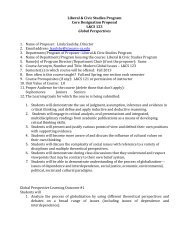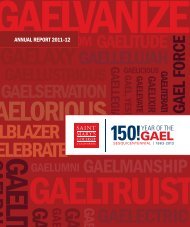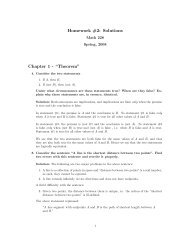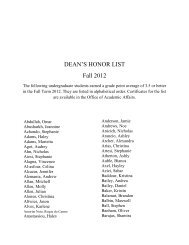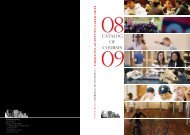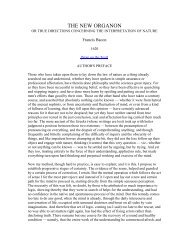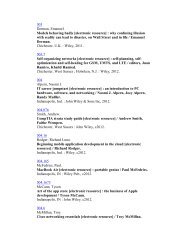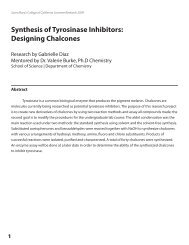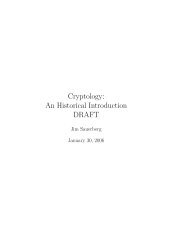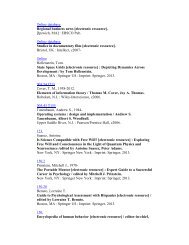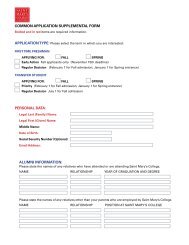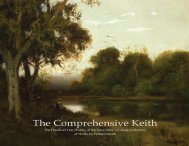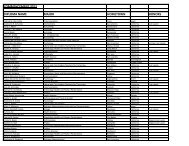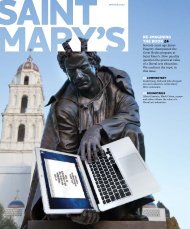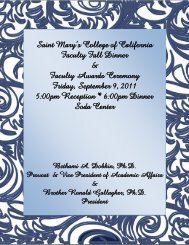Cryptology - Unofficial St. Mary's College of California Web Site
Cryptology - Unofficial St. Mary's College of California Web Site
Cryptology - Unofficial St. Mary's College of California Web Site
You also want an ePaper? Increase the reach of your titles
YUMPU automatically turns print PDFs into web optimized ePapers that Google loves.
5.10. EXERCISES 87<br />
17. General Pierre G.T. Beauregard, departmental commander <strong>of</strong> South Carolina,<br />
Georgia, and Florida forces <strong>of</strong> the Confederate Army sent Maj. Gen.<br />
Patton Anderson the following on 7 April 1864 [Gaddy]<br />
“General:<br />
I inclose you herewith the following simple cipher for future use in<br />
important telegrams to these headquarters. For very important telegrams<br />
the diplomatic cipher should be used. Please inform me <strong>of</strong> its<br />
reception.<br />
[Inclosure]<br />
[end quote]<br />
A by M H by R O by U U by F<br />
B by K I by S P by I V by Q<br />
C by O J by V Q by G W by D<br />
D by A K by H R by Y X by T<br />
E by N L by X S by E Y by B<br />
F by C M by P T by Z Z by J<br />
G by W N by L<br />
(a) Using this cipher, ORMYXNEZUL, EUFZR OMYUXSLM gives Beauregard’s<br />
location. Where was he<br />
(b) Using this cipher, Anderson’s location was KMXADSL CXUYSAM. Where<br />
is this<br />
18. (a) Here is a cipher sent during the controversy about the Florida electoral<br />
returns following the 1876 Presidential election. [Glover, page<br />
E-48].<br />
Jacksonville, 13.<br />
GEO. P. RANEY: 1:12 a.m., Nov. 14.<br />
Y e e i e m n s p p a i s s i t p i n s i t i t a a s h s h y y p<br />
i i m i m n s s s p e e n a a a i m a e n n s y i s n p i n s i m i<br />
m p e a a i t y y e n.<br />
DANIEL.<br />
As the New York Tribune put it, “It was evident, on a slight examination,<br />
that each letter in this cipher was not a substitute for<br />
another letter. . . . Probably, then, each letter in the cipher alphabet<br />
consisted <strong>of</strong> two characters.” Why<br />
(b) The Tribune then continued with a second message, “which, being<br />
partly in plain English, seemed to promise a clew [sic].”



